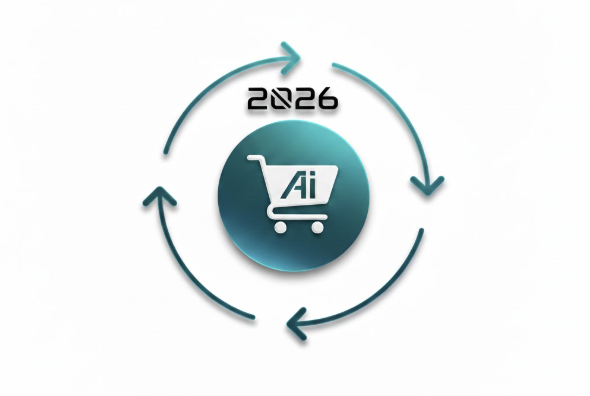AI Brand-Safety Checklist for Dietary Supplements Ecommerce

Key Takeaways
- Structure/function claims only - AI must distinguish between legal wellness claims and prohibited disease claims
- FDA compliance is non-negotiable - AI needs to understand DSHEA regulations and labeling requirements
- Third-party verification matters - AI should proactively surface testing certificates and quality assurances
- Age-specific restrictions - AI must enforce age limits for certain supplements and redirect minors appropriately
- Ingredient transparency is critical - AI should never make claims about ingredients that lack proper substantiation
- Adverse event awareness - AI must be programmed to escalate serious health concerns to appropriate channels
- Platform-specific compliance - AI responses must adapt to different marketplace advertising restrictions
The dietary supplement industry operates under a unique regulatory framework that's both more flexible and more restrictive than traditional pharmaceuticals. While the Dietary Supplement Health and Education Act (DSHEA) allows supplements to reach market without FDA pre-approval, it creates a complex web of compliance requirements around claims, labeling, and safety.
One misguided AI recommendation about treating disease, an unsupported ingredient claim, or inappropriate suggestion to someone with contraindications can trigger FDA enforcement actions, FTC violations, or serious liability issues. Your AI isn't just making product recommendations—it's navigating a regulatory environment where the difference between "supports immune function" and "boosts immunity" can determine your business's fate.
Here's your essential checklist to ensure your AI interactions maintain compliance while building trust with health-conscious consumers who depend on accurate, responsible guidance. Learn more about AI for health and wellness ecommerce and regulatory compliance strategies.
1. Structure/Function vs. Disease Claim Compliance
Your AI must be trained to distinguish between permissible structure/function claims and prohibited disease claims. It can say "supports cardiovascular health" but never "prevents heart disease." Build guardrails that ensure every product description and recommendation stays within FDA-approved language. AI that understands your brand means AI that protects your regulatory standing. Understanding FDA's structure/function claim guidance is essential for compliance.
2. Ingredient Safety and GRAS Status Verification
Configure your AI to only make claims about ingredients that have established safety profiles or GRAS (Generally Recognized as Safe) status. When customers ask about new or exotic ingredients, your AI should reference only verified safety data and established research rather than making broad wellness claims.
3. Age-Appropriate Product Recommendations
Train your AI to understand age restrictions for various supplements. It should never recommend high-dose vitamins to children, suggest performance enhancers to minors, or bypass age verification for supplements with usage restrictions. Built-in guardrails keep your recommendations safe and compliant across all demographics.
4. Third-Party Testing and Certification Transparency
Your AI should proactively surface third-party testing results, NSF certifications, USP verification, or other quality assurances when discussing products. When customers ask about purity, potency, or safety, your AI must immediately provide access to verification documents rather than making unsupported quality claims. Trustworthy AI interactions are rooted in verifiable data.
5. Contraindication and Interaction Awareness
Configure your AI to recognize when customers mention medications, health conditions, or circumstances that might contraindicate certain supplements. It should immediately direct these customers to consult healthcare providers rather than making recommendations that could cause interactions or adverse effects. Learn how AI improves product recommendations while maintaining safety protocols.
6. Dosage Guidance Within Legal Boundaries
Your AI should only reference manufacturer-recommended dosages and never suggest exceeding labeled amounts or using products for unlabeled purposes. Train it to remind customers that more isn't always better and to follow package directions while encouraging consultation with healthcare providers for personalized guidance.
7. Pregnancy and Nursing Restrictions
Implement strict guardrails around pregnancy and nursing recommendations. Your AI should never suggest supplements to pregnant or nursing customers without explicit healthcare provider approval, and must clearly identify products that are contraindicated during pregnancy or lactation.
8. Substantiation Requirements for Efficacy Claims
Train your AI to only make efficacy claims that are properly substantiated with clinical research. When customers ask about supplement benefits, your AI should reference peer-reviewed studies or established traditional use rather than making unsupported effectiveness claims. This approach builds credibility while maintaining compliance. FTC's substantiation requirements provide clear guidelines on evidence standards.
9. Platform-Specific Advertising Compliance
If you sell on multiple platforms, your AI needs to understand each marketplace's specific supplement policies. Amazon has strict requirements for supplement claims, while other platforms may prohibit certain ingredients entirely. Configure your AI to adjust language and recommendations based on the sales channel. Discover how AI improves conversion rates across different platforms.
10. International Shipping and Regulatory Awareness
Your AI should understand that supplement regulations vary globally and never recommend shipping restricted ingredients to countries where they're prohibited. It must check both ingredient legality and import restrictions before suggesting international orders, preventing costly regulatory violations.
11. Adverse Event Recognition and Escalation
Program your AI to recognize when customers report adverse effects or concerning symptoms and immediately escalate these situations to appropriate channels. It should never downplay health concerns or suggest continuing supplementation when customers report negative reactions. Learn how AI improves customer service while maintaining safety protocols.
12. Label Accuracy and FDA Disclaimer Compliance
Ensure your AI consistently includes required FDA disclaimers and never contradicts product labeling. When discussing any health benefits, it should include appropriate disclaimers like "This statement has not been evaluated by the FDA" and remind customers that supplements aren't intended to diagnose, treat, cure, or prevent disease. Understanding FDA's regulatory framework helps ensure compliance.
Why Envive Is Built for Brands That Prioritize Brand Safety
In the supplement industry, regulatory compliance isn't optional—it's what keeps your doors open. One AI mistake about disease treatment or an unsupported health claim can trigger FDA warning letters, FTC enforcement actions, or class action lawsuits.
Envive's approach to brand safety is built specifically for regulated industries like dietary supplements. Our AI agents are trained exclusively on your verified product data and configured with industry-specific compliance guidelines that understand the nuances of DSHEA regulations.
This means:
• No rogue health claims that cross the line from structure/function to disease treatment
• Zero unsupported efficacy statements about ingredients lacking proper substantiation
• Built-in compliance guardrails that adapt to FDA guidelines and FTC advertising requirements
• Real-time contraindication awareness so customers with health conditions get appropriate guidance
The difference is in our foundation. While generic AI systems might accidentally suggest treating diabetes with cinnamon or recommend high-dose vitamins to pregnant customers, Envive creates AI that understands your brand and your regulatory environment.
For supplement brands, this translates to AI that feels knowledgeable and helpful while never crossing legal boundaries. When a customer asks about joint support at 2 AM, they get compliant, evidence-based responses that build trust—not liability.
The result? No surprises, no violations, no lawsuits. Just AI that protects your business while serving health-conscious customers who value transparency and scientific backing. Explore our case studies to see how regulated brands maintain compliance while driving growth.
The Bottom Line
In the dietary supplement industry, brand safety means more than protecting your reputation—it means protecting your ability to help people on their wellness journeys. The regulatory landscape is complex, with FDA oversight, FTC advertising guidelines, and platform-specific restrictions creating a maze of compliance requirements.
When your AI is trained on your actual product data and configured with supplement-specific guidelines, you create more than just helpful customer interactions. You create a compliance shield that keeps your business operating within regulatory boundaries while building genuine trust with customers who depend on accurate health information.
Because when customers trust your compliance and scientific backing, they don't just buy once—they become loyal advocates for your brand's commitment to safety and efficacy.
Frequently Asked Questions
Q: How do I ensure my AI doesn't make unauthorized disease claims about supplements?
A: Train your AI with pre-approved structure/function language and clear examples of prohibited disease claims. Configure it to focus on how supplements support normal body functions rather than treating, preventing, or curing diseases. When customers ask about medical conditions, your AI should acknowledge their interest while directing them to healthcare providers for medical advice. FDA's guidance on dietary supplements provides clear distinctions between permissible and prohibited claims.
Q: What should my AI do when customers ask about supplement interactions with medications?
A: Your AI should immediately direct customers to consult their healthcare providers, pharmacists, or use professional drug interaction databases. It should never provide specific interaction information or suggest it's safe to combine supplements with medications. Having clear escalation protocols protects both customers and your business from liability.
Q: How can my AI help with dosage questions while staying compliant?
A: Train your AI to reference only manufacturer dosage guidelines found on product labels and never suggest exceeding recommended amounts. It should remind customers that supplement needs vary by individual and encourage consulting healthcare providers for personalized guidance. Your AI can share general dosage information while clearly disclaiming that it's not medical advice.
Q: Should my AI mention third-party testing and certifications?
A: Absolutely. Your AI should proactively share testing results, certifications (NSF, USP, etc.), and quality assurances when discussing products. This transparency builds trust and demonstrates your commitment to quality. Train it to explain what different certifications mean and why third-party verification matters for supplement quality.
Q: How do I handle age restrictions and recommendations for children?
A: Configure strict age-based guardrails that prevent inappropriate recommendations. Your AI should never suggest adult-strength vitamins to children, recommend supplements without pediatric formulations, or bypass parental consent requirements. When parents ask about children's supplements, direct them to pediatric-specific products and healthcare provider consultation.
Q: What should my AI do when customers report adverse effects?
A: Program your AI to take any adverse effect reports seriously and immediately escalate to customer service and appropriate health professionals. It should document the report, advise discontinuing the supplement, and suggest consulting healthcare providers. Never downplay concerns or suggest continuing supplementation when customers report negative reactions. The FDA's adverse event reporting system provides guidelines for proper handling.
Q: How often should I update my AI's supplement compliance knowledge?
A: Review and update guidelines quarterly, or immediately when FDA guidance changes or new safety information emerges. The supplement regulatory landscape evolves regularly with new ingredient assessments, label requirements, and enforcement priorities. Subscribe to FDA dietary supplement updates and FTC health claims guidance, work with regulatory consultants, and conduct regular compliance audits to keep your AI's knowledge current.

Other Insights

Insights with Ajinkya (Jinx) Joglekar

The Financial Inevitability of Custom AI Models

The Ecommerce Reset: What Matters Going Into 2026
See Envive
in action
Let’s unlock its full potential — together.






